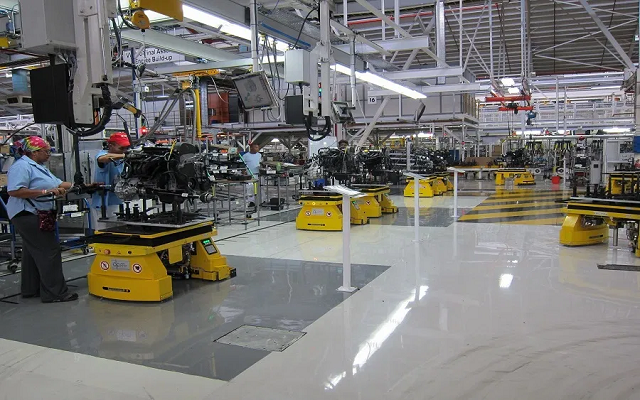The Executive Secretary, National Association of Small and Medium Enterprise (NASME), Mr Eke Ubiji, said 222 manufacturing firms in the country were either ailing or had collapsed in the last six months.
Ubiji disclosed this at the NOI polls’ “Stakeholders Dailogue on the Manufacturing Sector in the Country’’ on Tuesday in Abuja.
He said that most companies affected by the downturn attributed their plight to poor business environment.
He said that the association conducted a survey in February when the Ministry of Industry, Trade and Investment requested that the number of ailing and collapsed manufacturing firms should be forwarded to it.
Ubiji stated that affected companies were in 10 states of Abia, Anambra, Akwa Ibom, Bauchi, Enugu, Kano, Lagos, Nassarawa, Ogun, Rivers and the Federal Capital Territory.
According to him, eight companies are affected in Abia, 20 in Akwa Ibom, eight in Anambra, 34 in Bauchi, four in Enugu and 12 in the Federal Capital Territory.
Others, he said, were Kano, 25; Lagos, 22; three in Nasarawa, 67 in Ogun and 19 in Rivers.
The NASME scribe said that the major cause of the collapse of manufacturing companies was lack of access to credit, foreign exchange challenges, high interest rates, poor state of infrastructure and multiple-taxation.
He added that some of the firms claimed that legal and regulatory challenges, low capacity on road, ICT and inadequate linkages to local and international supply chain also affected them.
He stated that the association had suggested that government should in the short term, raise capacity utilisation in manufacturing and provide support service that could help manufacturers.
“There is the need to create new opportunities for development of small-scale sectors and create more direct and indirect employment opportunities,” he said.
Ubiji also said that government must be consistent in its industrial policies as inconsistency in policy had negatively affected the sector.
“There is need to harmonise the role of the government regulatory agencies so as to eliminate the current role conflicts among them,” he said.
Earlier, Chief Executive Officer, NOIpolls, Dr Bell Ihua, said that a poll conducted by the company showed that the sector grew at average of 16.7 per cent between 2010 and 2014.
He also said that the sub-sector contributed 24.7 per cent to the nation’s Gross Domestic Product (GDP) during the period.
Ihua said that it was unfortunate that the figure contracted by 1.5 per cent during the period, with GDP reduction from 6.2 per cent in 2014 to 2.8 per cent in 2015.
He said that three sectors of food, textiles and motor vehicles that accounted for two-thirds of manufacturing output contracted by 5.4 per cent, 1.1 per cent and 5.5 per cent, respectively, during the period.
“Overall, 69 per cent sampled firms do not find the business environment supportive, including 74 per cent of small companies, 63 per cent of medium companies and 71 per cent of large companies.
“Lack of supportive environment is reported by 100 per cent of companies in North Central, 88 per cent in South-East, 80 per cent in North-West.
“The figure is 67 per cent in South-South, 65 per cent in North-East and 35 per cent in South-West,” he said.
Ihua added that 75 per cent of companies expected better business environment in future, adding that most of them were hopeful that with positive intervention, things would be better.
He said that the survey was conducted in May, 2016 with 205 manufacturing companies in six geo-political zones involving 12 states.
(NAN)













